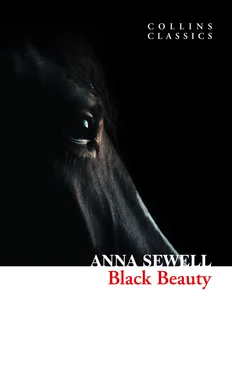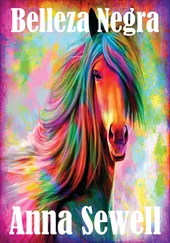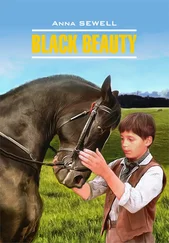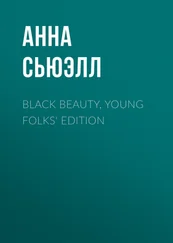Collins Classics
In 1819, Millworker William Collins from Glasgow, Scotland, set up a company for printing and publishing pamphlets, sermons, hymn books and prayer books. That company was Collins and was to mark the birth of HarperCollins Publishers as we know it today. The long tradition of Collins dictionary publishing can be traced back to the first dictionary William published in 1824, Greek and English Lexicon . Indeed, from 1840 onwards, he began to produce illustrated dictionaries and even obtained a licence to print and publish the Bible.
Soon after, William published the first Collins novel, Ready Reckoner , however it was the time of the Long Depression, where harvests were poor, prices were high, potato crops had failed and violence was erupting in Europe. As a result, many factories across the country were forced to close down and William chose to retire in 1846, partly due to the hardships he was facing.
Aged 30, William’s son, William II took over the business. A keen humanitarian with a warm heart and a generous spirit, William II was truly ‘Victorian’ in his outlook. He introduced new, up-to-date steam presses and published affordable editions of Shakespeare’s works and Pilgrim’s Progress , making them available to the masses for the first time. A new demand for educational books meant that success came with the publication of travel books, scientific books, encyclopaedias and dictionaries. This demand to be educated led to the later publication of atlases and Collins also held the monopoly on scripture writing at the time.
In the 1860s Collins began to expand and diversify and the idea of ‘books for the millions’ was developed. Affordable editions of classical literature were published and in 1903 Collins introduced 10 titles in their Collins Handy Illustrated Pocket Novels. These proved so popular that a few years later this had increased to an output of 50 volumes, selling nearly half a million in their year of publication. In the same year, The Everyman’s Library was also instituted, with the idea of publishing an affordable library of the most important classical works, biographies, religious and philosophical treatments, plays, poems, travel and adventure. This series eclipsed all competition at the time and the introduction of paperback books in the 1950s helped to open that market and marked a high point in the industry.
HarperCollins is and has always been a champion of the classics and the current Collins Classics series follows in this tradition – publishing classical literature that is affordable and available to all. Beautifully packaged, highly collectible and intended to be reread and enjoyed at every opportunity.
Life & Times
About the Author
Born in Norfolk, England in 1820, writer Anna Sewell is the perfect example of the well-known adage that everybody has one novel in them. Black Beauty is her one and only published work and it went to press just a few months before her death at the age of 58.
Sewell’s literary success has as much to do with exposure to the right influences as much as anything else. She was brought up as a Quaker and educated at home. Her mother became a successful children’s writer, and Sewell was involved with the editing of her books. At age 12, Sewell was sent to school in London for two years, but this exciting part of her life was short-lived as it was at school that she slipped and injured both her ankles. As a result she remained lame for the rest of her life, moving to Brighton with her parents for a change of air. She frequently attended European health spas to try and improve her health and met many creative people during her stays, including philosophers, writers and artists. It seems that this combination of experiences helped to plant the seed for Black Beauty , which she began to write six years prior to its publication in 1877.
Sewell was a deeply religious woman and claimed that her sole motive for writing Black Beauty was to urge people to treat horses with more kindness. Due to her condition, Sewell could not walk very far and she habitually relied on horse drawn vehicles to get about, so she was frequently close to and engaged with horses. In writing Black Beauty , Sewell imagined the character of the horse itself and invented an entirely new genre, where the story is told in the first ‘person’ by the eponymous horse.
Visit www.AuthorTracker.com for exclusive information on your favorite HarperCollins author.
The story of Black Beauty narrates the life of Black Beauty himself, from foal to working horse to pasture. Along the way the horse has a gamut of experiences where he and other horses are treated with kindness, indifference and cruelty by humans, enlightening the reader about the feelings and emotions of horses.
During the Victorian era people had little empathy for their beasts of burden, but that all changed when Black Beauty was published, especially because of the Christian message that people might be judged by their god if they failed to treat animals with consideration. There was a seesaw effect, so that the general population suddenly tilted in favour of animal welfare, and especially towards horses. Today a vestige of that effect is seen in the British reluctance to eat horse meat as if horses deserve reverence over other livestock.
Due to Sewell’s intimate knowledge of horses her attention to detail lends the book a sense of realism, and the narration of the story through the mouth of a horse is the perfect vehicle for displaying that knowledge. In fact that is where the phrase to hear something ‘straight from the horse’s mouth’ originates, in reference to Black Beauty .
In addition to encouraging people to desist from deliberate cruelty to horses, Sewell also brought into question certain established practices, including the use of blinkers, which prevent the horse from having a panoramic view, and the use of a check rein, which holds the horse’s head in a supposedly elegant, but unnatural posture.
In 1893 a similar book, titled Beautiful Joe , was published by Margaret Marshall Saunders. This time it was about a dog, but it was directly inspired by Black Beauty and was also a success. Marshall Saunders even wrote the book as a life story from the animal’s point of view, in homage to Sewell and she even alludes to Sewell’s book in her own.
Sewell’s real legacy was to connect emotionally with the reader via the animal’s mind. It was a trick really, as it supposed that animals are as sentient as humans, none-the-less it worked. All of a sudden Victorian society was tuned in to animal rights as the new way of showing how righteous one could be. Sewell succeeded in her aim as well as writing one of the best-loved novels of all time. In fact it remains one of the top 10 best selling English language books.
Cover Page
Title Page
History of Collins
Life & Times
PART ONE
CHAPTER 1 My Early Home
CHAPTER 2 The Hunt
CHAPTER 3 My Breaking In
CHAPTER 4 Birtwick Park
CHAPTER 5 A Fair Start
CHAPTER 6 Liberty
CHAPTER 7 Ginger
CHAPTER 8 Ginger’s Story Continued
CHAPTER 9 Merrylegs
CHAPTER 10 A Talk in the Orchard
CHAPTER 11 Plain Speaking
CHAPTER 12 A Stormy Day
CHAPTER 13 The Devil’s Trade Mark
CHAPTER 14 James Howard
CHAPTER 15 The Old Ostler
CHAPTER 16 The Fire
CHAPTER 17 John Manly’s Talk
CHAPTER 18 Going for the Doctor
CHAPTER 19 Only Ignorance
CHAPTER 20 Joe Green
CHAPTER 21 The Parting
Читать дальше












